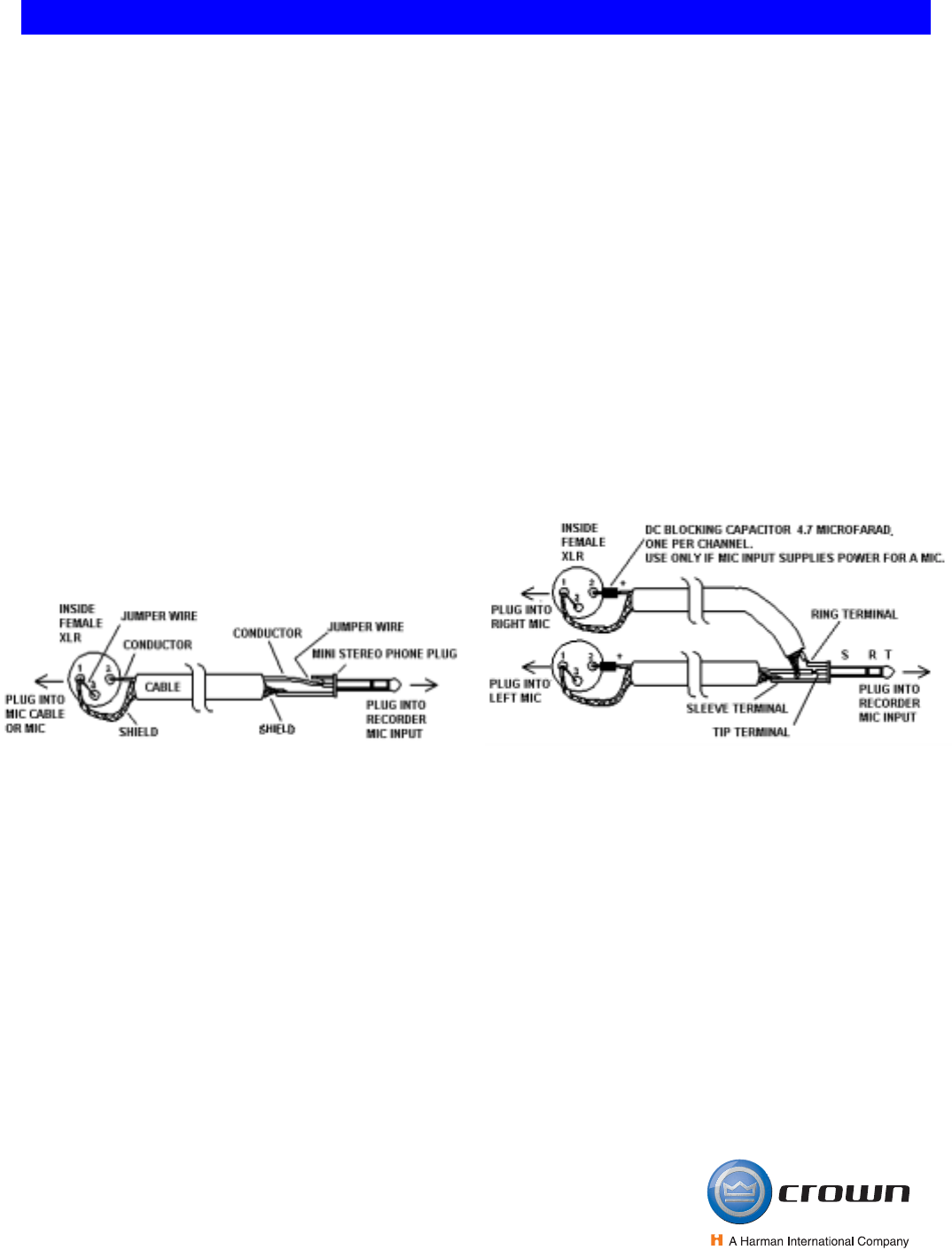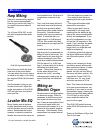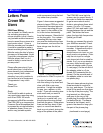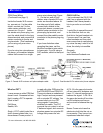
For more information, call 800-342-6939
4
Mic
Memo
PZM Piano Miking
(Continued from page 3)
Inside the female XLR connec-
tor, connect pin 1 to the cable
shield, connect pin 2 to the
cable center conductor, and
connect pin 3 to pin 1. Inside
the stereo mini phone plug, con-
nect the cable shield to the long
sleeve terminal, and connect the
center conductor to the tip and
ring terminals. (That's assuming
you're using only one micro-
phone).
If you're using two microphones
for stereo, you need two adapter
cables that connect to a single
stereo mini phone plug (Figure
3). On the mic end of both
cables, wire a female XLR con-
nector as described above. At
the other end of both cables,
connect both shields to the
phone-jack sleeve, connect one
cable's center conductor to the
phone-plug tip terminal, and
connect the other cable's center
conductor to the phone-plug ring
terminal.
If you hear distortion when
recording the piano, set the
MiniDisc recorder’s gain switch
to lower gain. If you’re using a
DAT recorder, switch in the input
pad.
CM-311AE Fan
I just purchased the CM-311AE
and I am so pleased with the
headset, that I have placed a
link to your site on our band's
site.
I would like to spread the word
to the folks that visit our site,
that this is the best headset mic
I've ever used! I've used two
other headsets and they don't
even come close to reproducing
my voice the way I need it to be
done, the clarity is incredible.
Sincerely,
Jay Tucker
www.HeartsonFireband.com
What's a PXT?
I came across an older PZM that
doesn't work. Someone told me
that it needs a PXT to operate.
What is that?
Phil Burns
Seattle, WA
Reply: A PXT, which looks like a
short chrome-plated tube, is a
discontinued Crown product. It
is used with older PZM mics like
the PZM-30GPG and PZM-31S.
Those mics have an unbalanced
high-Z output and are powered
with a unipolar DC voltage. You
connect each mic to a PXT
using regular 2-conductor
shielded mic cable. The PXT
converts the mic output to a low-
Z balanced signal, and converts
phantom power to a unipolar DC
voltage that powers the mic.
A PX-18 is the same but works
off two internal 9V batteries and
has a 1:1 internal transformer to
balance the signal. A PA-18 is
the same but works off two inter-
nal 9V batteries and has an
active circuit to balance the sig-
nal.
Newer Crown mics have the
electronics built into the mic or
its connector. They have a low-
impedance balanced output.
Figure 2. Female XLR to stereo mini phone adapter cable.
Figure 3. Dual female XLR to stereo mini phone adapter.






